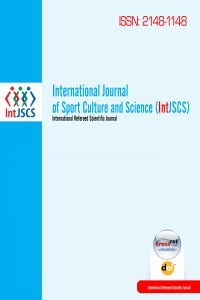Lack of Knowledge and Atmosphere of Speaking English creates many problems for Pakistani Athletes and International Players at International Sports Events
English language has gained repute of an international language. It is learnt and taught in almost all the countries of the world as a second or foreign language. Even in many Non-English countries, it is used as an official language. In many countries, tourist-guides use this language to guide the tourists. English language is widely used at international airports. It is language of medicine, internet, books and journals all over the world. Similarly, many Sports Events are conducted while taking the help of English speakers to guide the athletes and international players. Lack of atmosphere of speaking English creates many problems for international athletes and players all over the world. Many times, it has been observed that speaking and understanding of different languages between two teams and officials and even between a team and umpires creates a lot of problems during a match. This situation of speaking different languages also creates a lot of issues outside the ground for international players. Although, English language is used as a foreign language by many athletes and international players yet there are myriads of players who cannot speak English language, hence, they face a lot of problems inside and outside the field. If we talk about Pakistani International athletes and players, we find that most of them are unable to speak English in spite of the fact that English language is used as an official as well as foreign language in Pakistan. English is learnt and taught as a compulsory subject from class One to graduate level. In spite of it, there is vivid lack of atmosphere of speaking English language. It is observed that many of Pakistani international players cannot speak English and they have to take help of other officials who can speak English. Lack of knowledge and atmosphere of speaking English create a lot of issues for Pakistani International athletes and players which are going to be spotlighted in this ‘Research Paper’.
Keywords:
International sports events, Athletes English language,
___
- Afzal, M.M. (1983). Intermediate English Composition. Ilmi Kutab Khana Urdu Bazar Lahore.
- Afzal, M.M. (1983). Writing Skill and Intermediate Students. English Language Teaching, University Grants Commission Islamabad.
- Arwood, E. (2011). Language Function. Jessica Kingsley Publishers.
- Asad Rizk, A.M. (1977). Linguistic Redundancy as a factor in Comprehension. American University in Cairo.
- Asghar, G. J. (1965). Repon College Composition. Repon Printing Press Lahore.
- Asher, R.E., & Simpson, J. M. Y. (1994). The Encyclopedia of Language and Linguistics: Rad-Soc. Pergamon Press.
- Bashiruddin, A. (2011). Learning and Teaching of English in Pakistan. LAP Lambert Academy Publishing.
- Haq, A. (1961). The Teaching of English in Pakistan. M.R.Bros.
- Iqbal, M. (2011). Education in Pakistan: Development Milestones. Paramount Publishing.
- Javed Malik, F. (1996). The Teaching of English in Pakistan: A Study in Teacher Education. Vanguard, University of Michigan, 1996.
- Talaat, M. (1988). Lexical Variations in Pakistani English: A View on Language Contact and Change. Thesis, (M. Phil.). Multan: Bahauddin Zakariya University.
- Talaat, M. (2002). The Form and Functions of English in Pakistan. Thesis, (PhD). Multan: Bahauddin Zakariya University.
- Talaat, M. (2003). Pakistani English: A Social linguistic Variety. Journal of Research (Faculty of Language and Islamic Studies).
- Batley, E., Cndelier, M., Hermann-Brennecke, G. & Szepe, G. (1993). Language Policies for the World of the Twenty-first Century: report for UNESCO. London: FIPLV (World Federation of Modern Language Association).
- Kornbeck, J. (2008). A ‘Reverse Mission’ Perspective on Second-Language Classes as Part of Social Work Education Programmes. Portularia (Revista de Trabajo Social), 8(2), 65–77.
- McNamee, M. (2013). Sports officiating, linguistic bias and fair play. Sport, Ethics and Philosophy, 7(4), 365–367.
- ISSN: 2148-1148
- Başlangıç: 2013
- Yayıncı: Uluslararası Bilim Kültür ve Spor Derneği (UBİKS)
